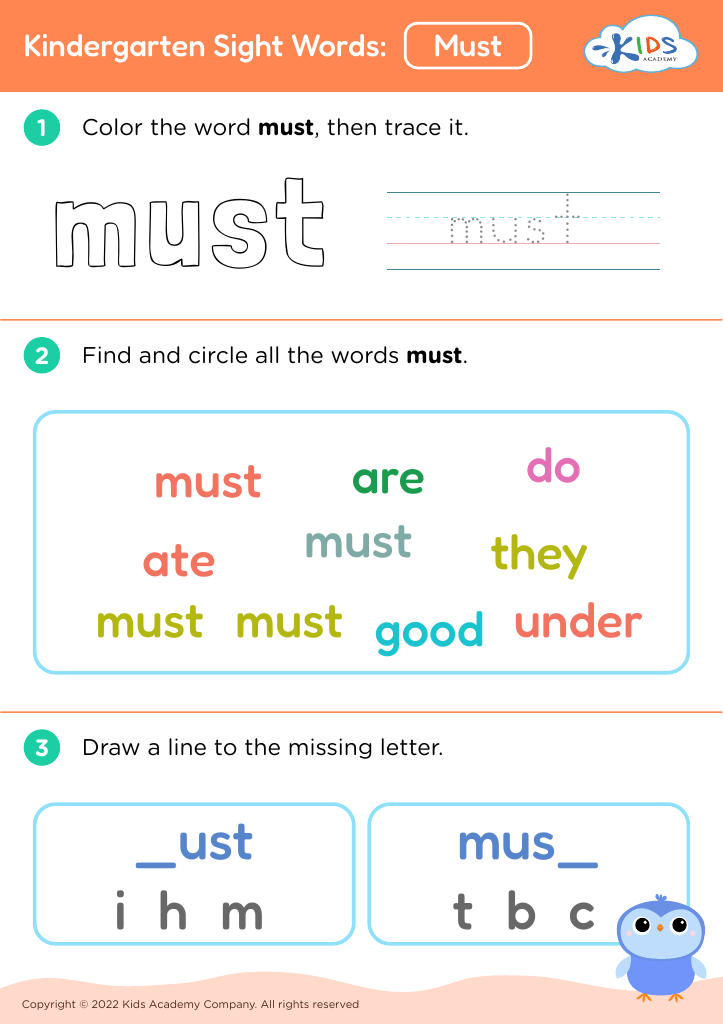Vocabulary development Building Vocabulary Worksheets for Ages 3-7
10 filtered results
-
From - To
Enhance your child's vocabulary with our engaging "Building Vocabulary Worksheets" designed specifically for ages 3-7! These meticulously crafted worksheets promote active learning as young learners explore new words through fun activities like matching, coloring, and tracing. Each worksheet focuses on different themes, helping children connect vocabulary to everyday life while boosting language skills. Our resources support early literacy development and foster a love for reading, ensuring children build a strong foundation for future learning. Perfect for home or classroom use, these worksheets make learning exciting and effective. Get started on enriching your child's vocabulary journey today!
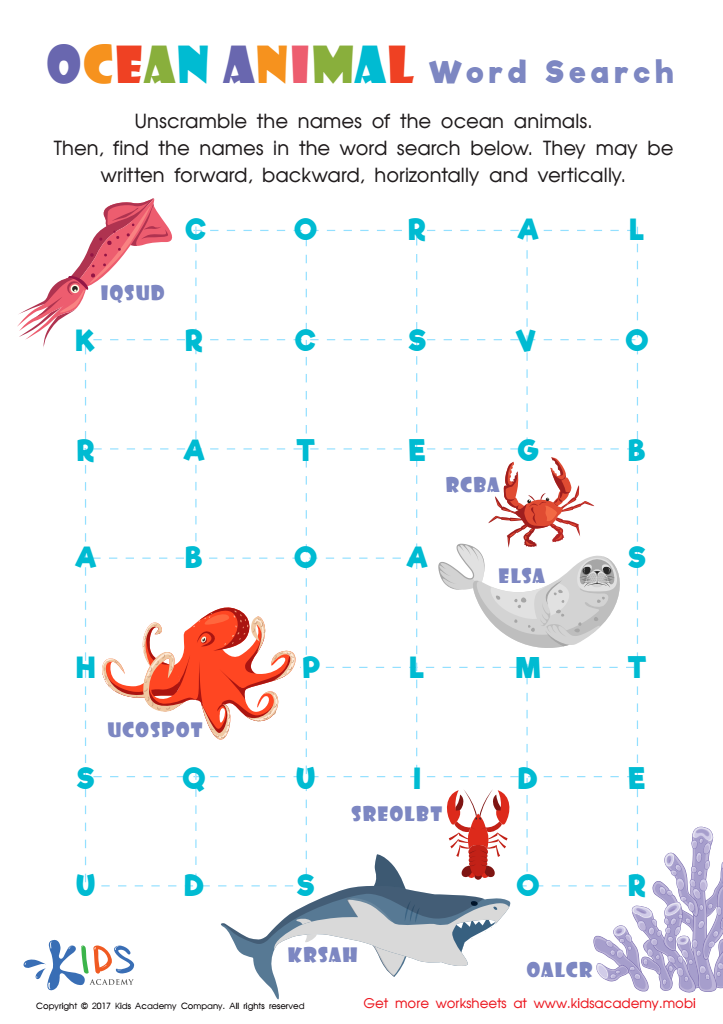

Ocean Animals Word Search Printable
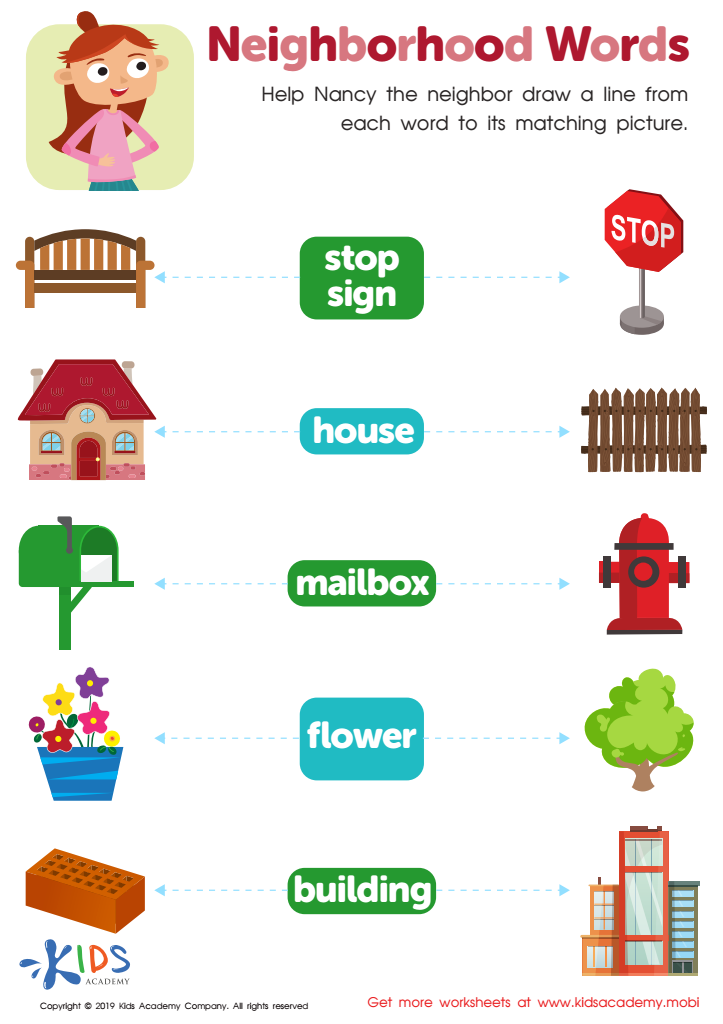

Neighborhood Words Worksheet
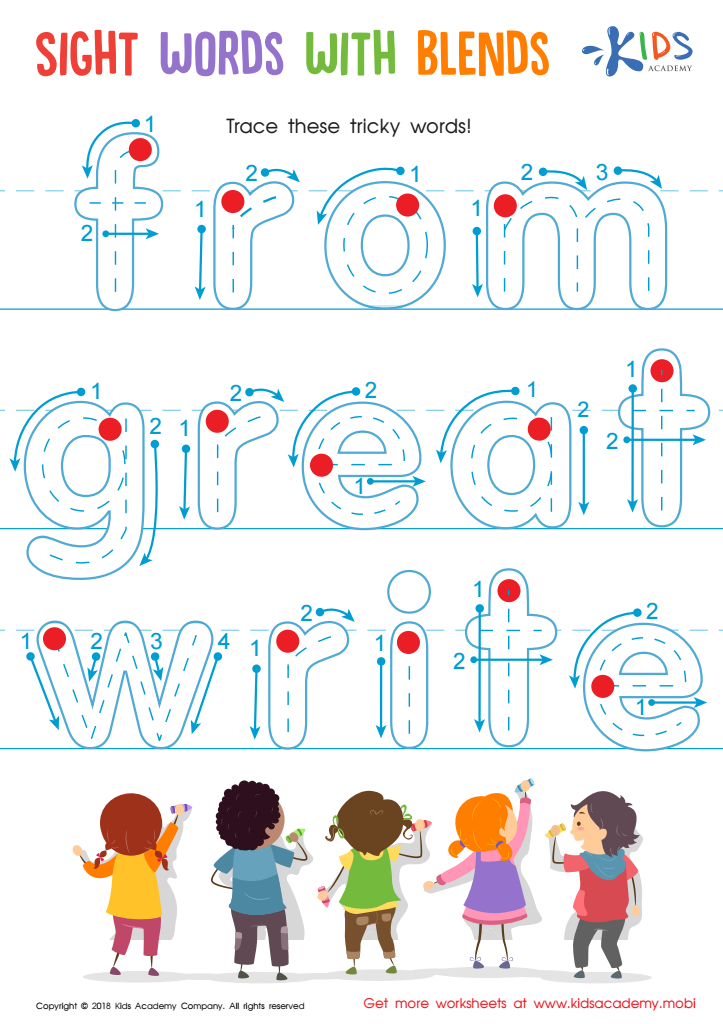

Sight Words with Blends Worksheet
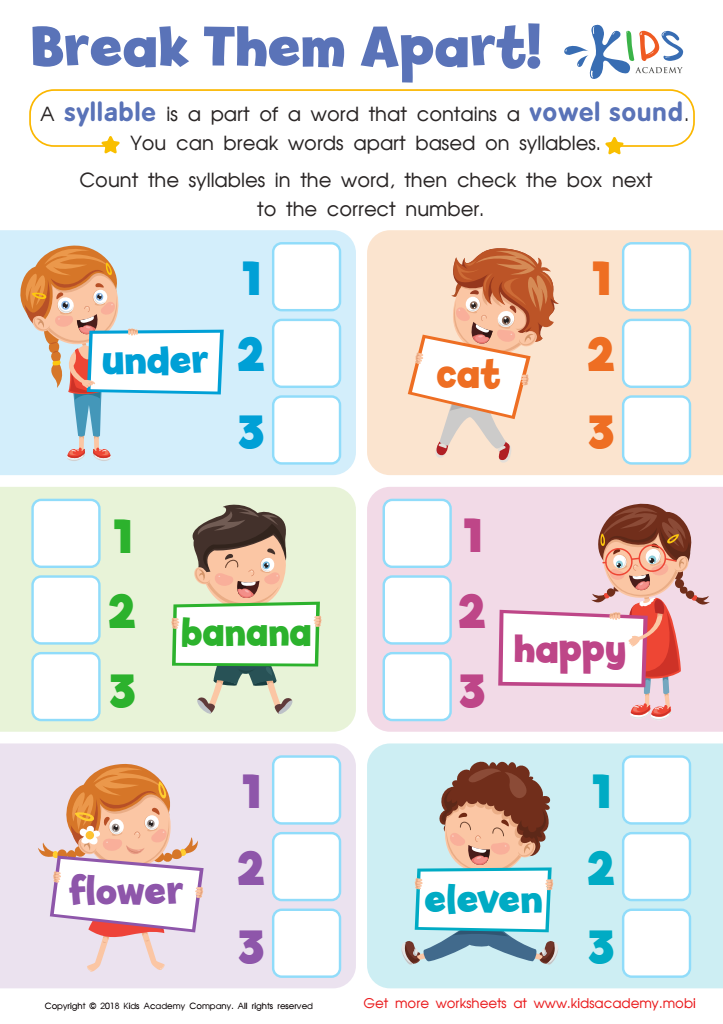

Reading: Break Them Apart Worksheet
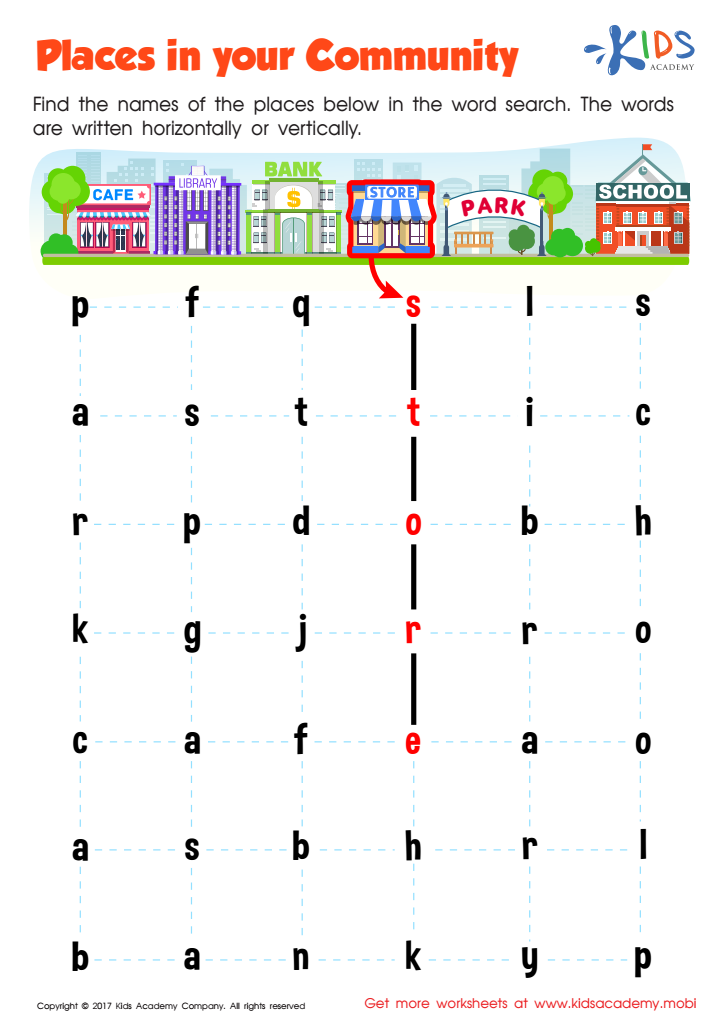

Places in Your Community Worksheet
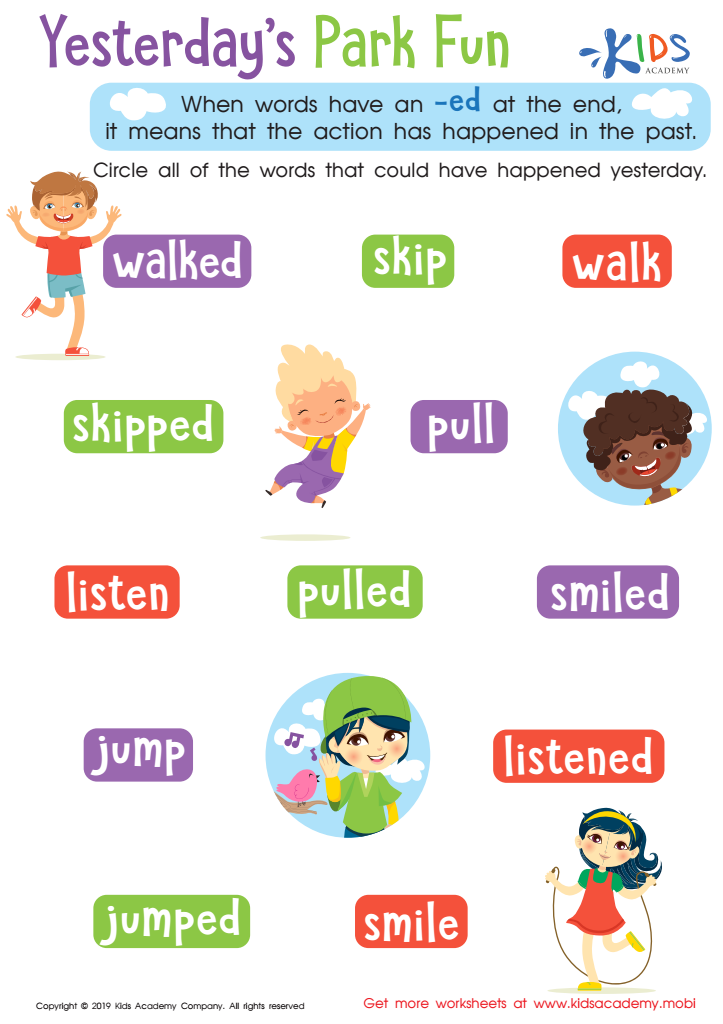

Yesterday's Park Fun Worksheet
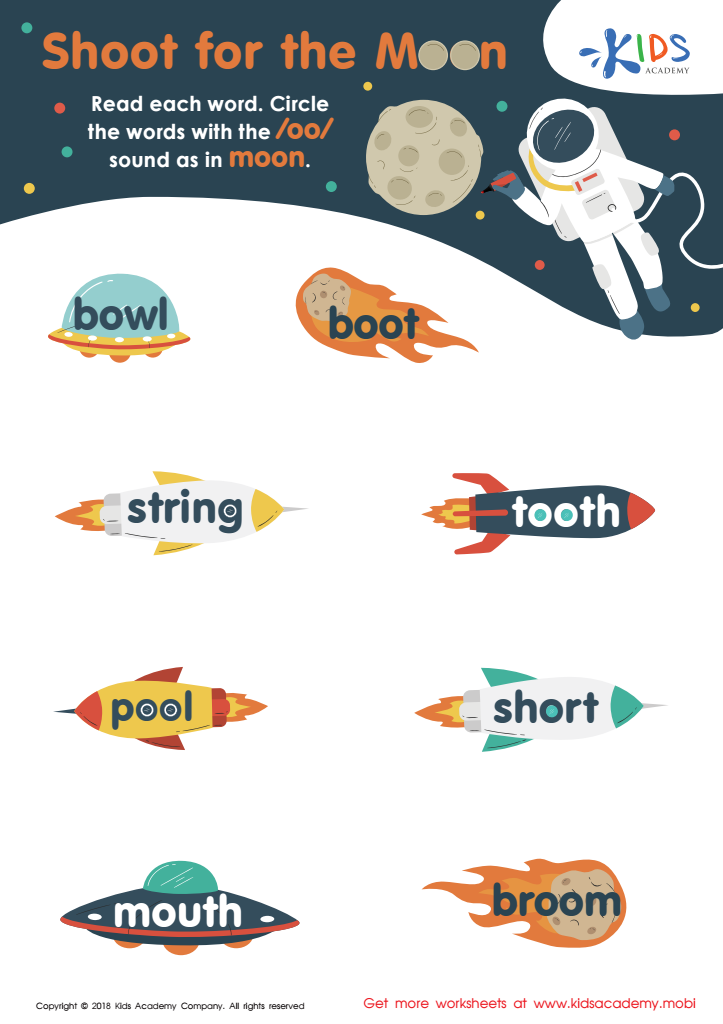

Reading: Shoot for the Moon Worksheet
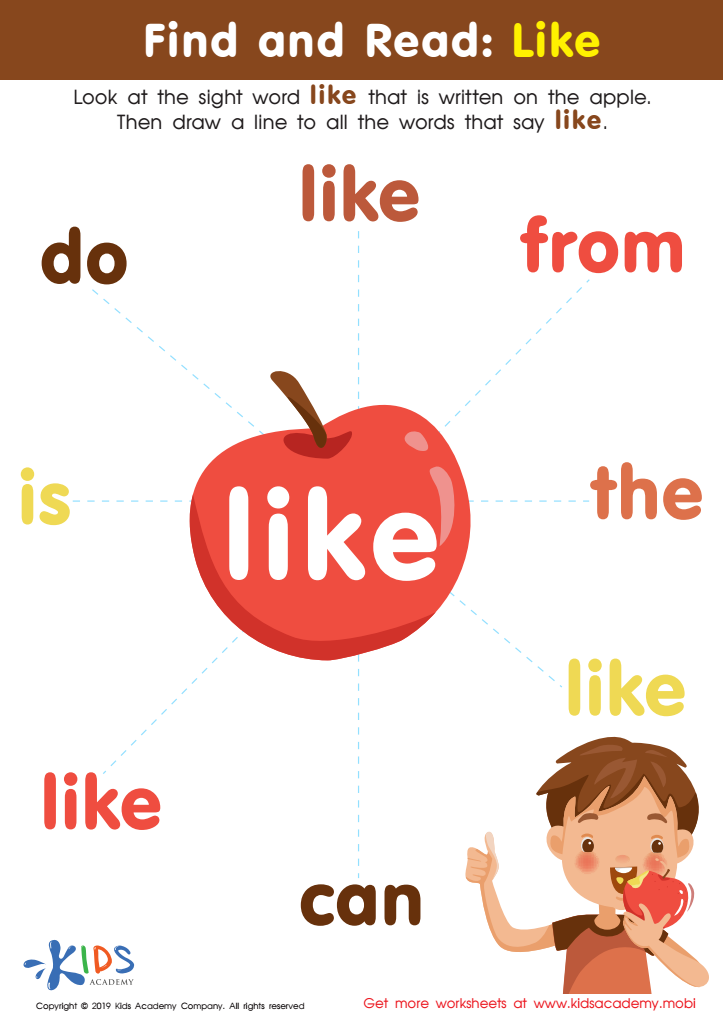

Find and Read: Like Worksheet
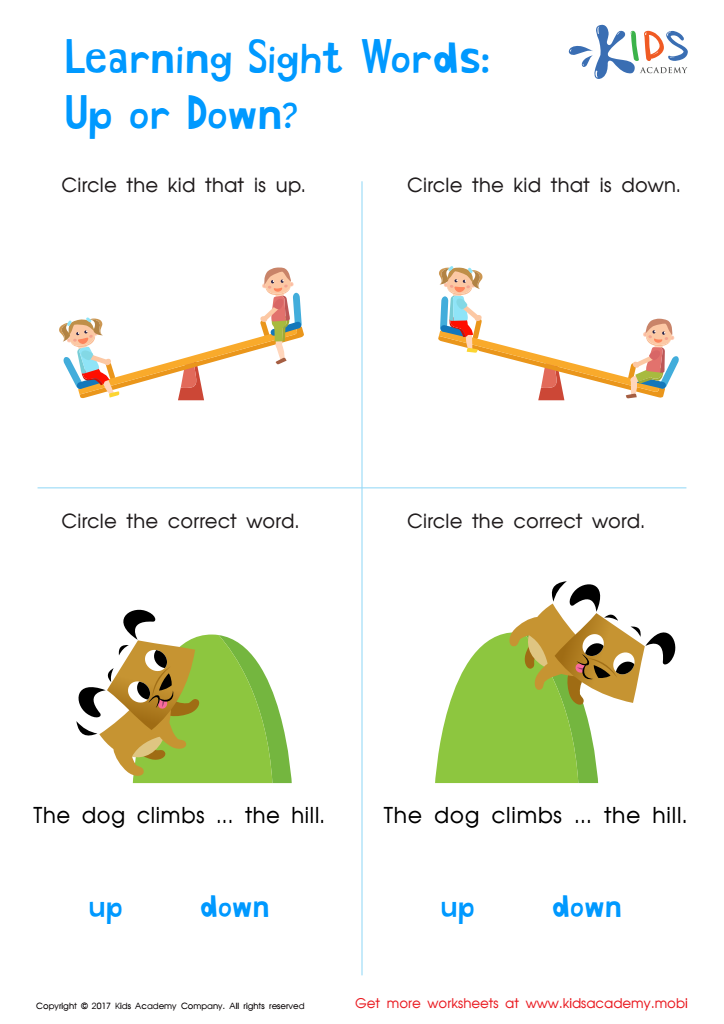

Up or Down Printable Sight Words Worksheet
Vocabulary development is crucial for children aged 3-7, as it lays the foundation for literacy and overall academic success. At this age, children are rapidly absorbing language and making connections between words and their meanings. A rich vocabulary enhances their ability to express thoughts, emotions, and ideas, which is vital for effective communication.
Parents and teachers should prioritize vocabulary building because it significantly impacts reading comprehension. A strong vocabulary helps children decode and understand stories, making them more confident readers. Furthermore, verbal skills contribute to critical thinking and problem-solving abilities, preparing children for complex tasks in later educational stages.
Engaging with children through songs, stories, and conversations fosters a love for language and exposes them to diverse words and contexts. Interactive activities, like word games and discussions, encourage exploration and creativity, further enriching their linguistic competence.
Investing time in vocabulary development not only benefits children academically but also boosts their social skills as they learn to articulate their feelings and connect with others. Ultimately, a robust vocabulary serves as a stepping stone for lifelong learning and personal growth, making it essential for parents and teachers to actively support this developmental milestone.
 Assign to My Students
Assign to My Students
